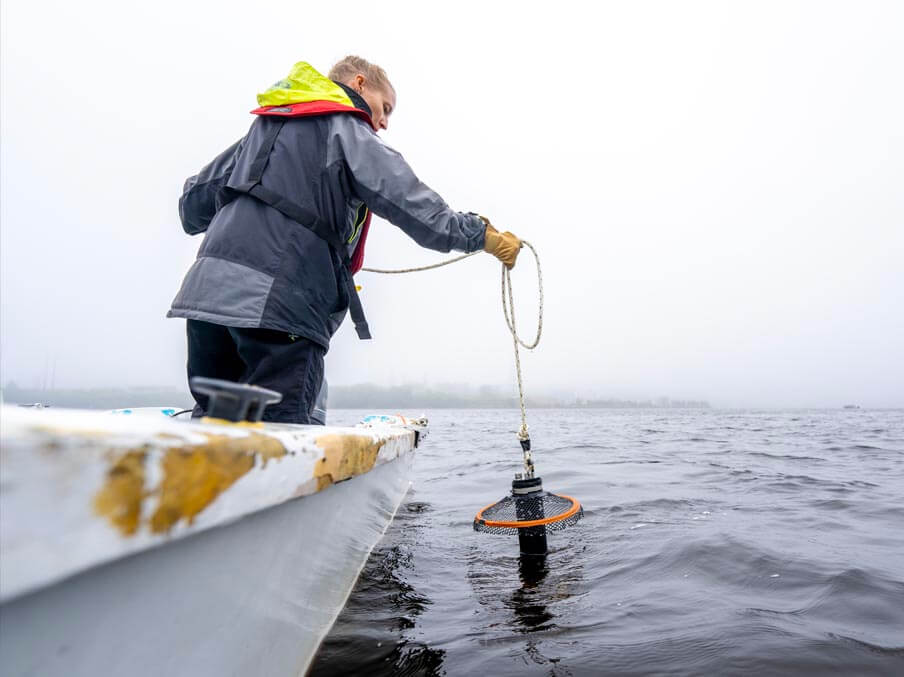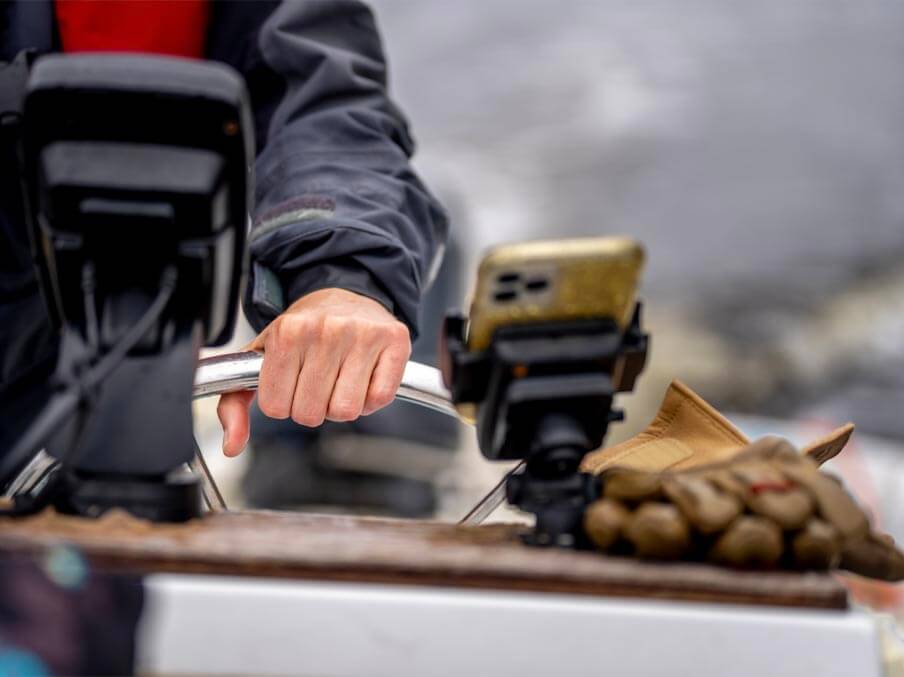Lauren Ross, PH.D.
Associate Professor | Civil and Environmental Engineering
Ross navigates fjords and estuaries in Maine and beyond to study and safeguard delicate marine ecosystems.
Lauren Ross keeps her eyes fixed on the horizon as she navigates through the Chilean fjords, pointing out to her graduate students the very phenomena they’ve come to study: harmful algae blooms thriving in these estuaries due to the intricate dance of freshwater rivers and seawater convergence. It’s a scene reminiscent of what she’s observed along Maine’s coastline. Today’s research endeavors aim to draw parallels between these distant regions, equipping scientists with crucial data to safeguard coastlines and sustain the communities and economies reliant on these delicate ecosystems.
“Land-sea connections are important because the majority of the population lives on the coast.”
Lauren Ross
Funded by her recent Fulbright scholarship and NSF CAREER grant, Ross’s work extends its impact globally, enhancing scientists’ understanding of how estuaries, rivers, and tides influence circulation patterns shaped by the interplay of saltwater and freshwater. Beyond advancing scientific knowledge, this research provides mentorship and fieldwork opportunities for graduate students, bridging the gap between theory and practice.


Ross grew up along Florida’s beaches, immersed in coastal ecosystems, and witnessing firsthand the sea of problems that needed to be solved. With a penchant for mathematics and adventure, she earned her doctorate in Coastal and Oceanographic Engineering. Since then, she has devoted her life to the study and stewardship of coastlines, drawing inspiration from the very environment she experienced growing up.
“Land-sea connections are important because the majority of the population lives on the coast,” Ross says. “The coasts of estuaries support coastal communities, shipping ports, aquaculture activities, and a delicate ecosystem, all of which are susceptible to anthropogenic effects such as coastal pollution and of course climate change. It’s super complex, and that is what’s so intriguing. There is something to constantly discover.”
